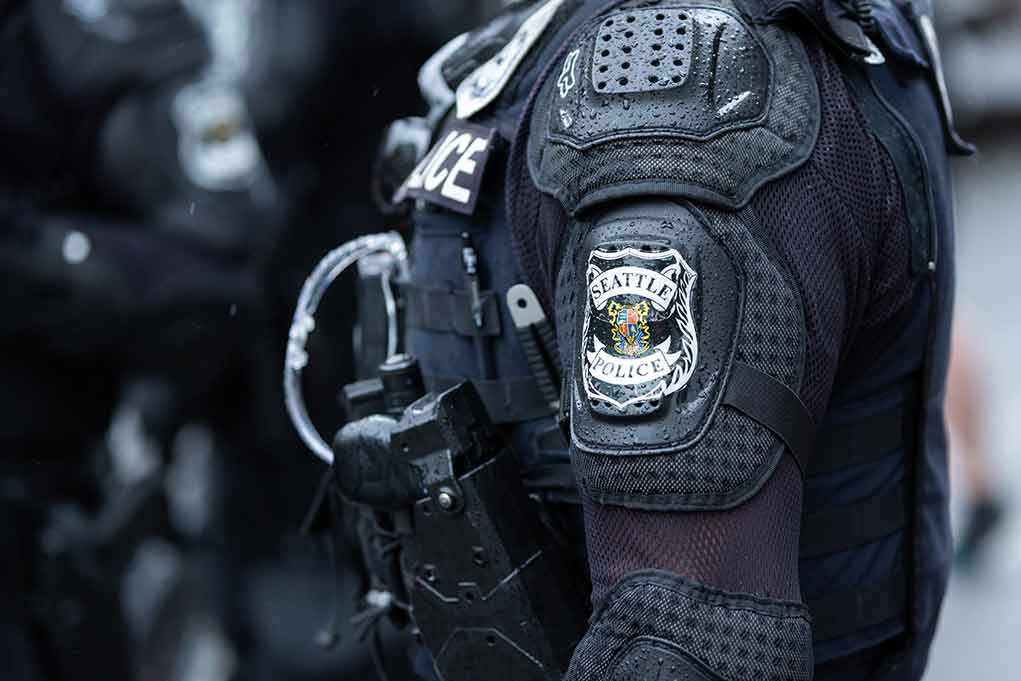
An ICE detainer against an illegal alien accused of child rape in Massachusetts ignites a fierce debate over sanctuary policies.
Story Overview
- ICE files a detainer against Manuel Umana Solorzano, a Salvadoran national, in Massachusetts.
- The case highlights tensions between federal immigration enforcement and state sanctuary policies.
- Massachusetts’ refusal to cooperate with ICE detainers is under scrutiny.
- The debate underscores concerns about public safety and immigration law compliance.
ICE Detainer Challenges Sanctuary Policies
In a high-stakes move, U.S. Immigration and Customs Enforcement (ICE) has lodged a detainer against Manuel Umana Solorzano, a 29-year-old Salvadoran national, in Milford, Massachusetts. Solorzano faces multiple charges, including rape of a child, statutory rape, and possession of child pornography. This case has drawn significant attention due to Massachusetts’ designation as a “sanctuary state,” where local authorities often limit cooperation with federal immigration officials.
The detainer, filed on August 5, 2025, requests that local law enforcement hold Solorzano for ICE custody following his state criminal proceedings. This request comes amidst a polarized political climate where federal and state authorities clash over immigration enforcement. ICE and the Department of Homeland Security (DHS) officials have criticized Massachusetts for its sanctuary policies, arguing that they hinder efforts to remove individuals deemed threats to public safety.
Sanctuary Policies Under Fire
The tension between federal and state authorities underscores the broader national debate over sanctuary policies. These policies, which Massachusetts and other states have adopted, limit local compliance with ICE detainers unless a judicial warrant is provided. Critics argue that such policies compromise public safety by allowing potentially dangerous individuals to remain free. The case of Solorzano is not an isolated incident; there have been previous instances where local authorities released individuals subject to ICE detainers, who later committed further crimes.
Supporters of sanctuary policies, however, argue that they protect immigrant communities from unwarranted detention and racial profiling. They contend that cooperation between local law enforcement and ICE can erode trust in police, discouraging crime reporting and cooperation with investigations. This legal and ethical conflict continues to fuel political discourse and legislative efforts to clarify the obligations of local authorities regarding ICE detainers.
Impact and Future Implications
The outcome of Solorzano’s case will likely affect both short-term and long-term perceptions of sanctuary policies and their implementation. In the short term, the case tests Massachusetts’ resolve in upholding its sanctuary status against federal pressure. Long-term implications may include shifts in public opinion, influencing policy debates and legislative changes concerning sanctuary laws and ICE cooperation.
The case also impacts various communities and stakeholders, including victims and their families, immigrant communities, and law enforcement agencies navigating conflicting mandates. It raises questions about the balance between public safety and the protection of individual rights under the constitution. The case’s resolution could set a precedent for how similar situations are handled in the future.
Overall, the case highlights the complexities of immigration enforcement in sanctuary jurisdictions, where federal and local authorities often have conflicting priorities. As debates continue, the focus remains on finding a balance that upholds public safety while respecting the rights and protections afforded by law.
Sources:
Breitbart News exclusive report
U.S. Department of Homeland Security press release
ICE FOIA logs (general detainer activity, not case-specific)











